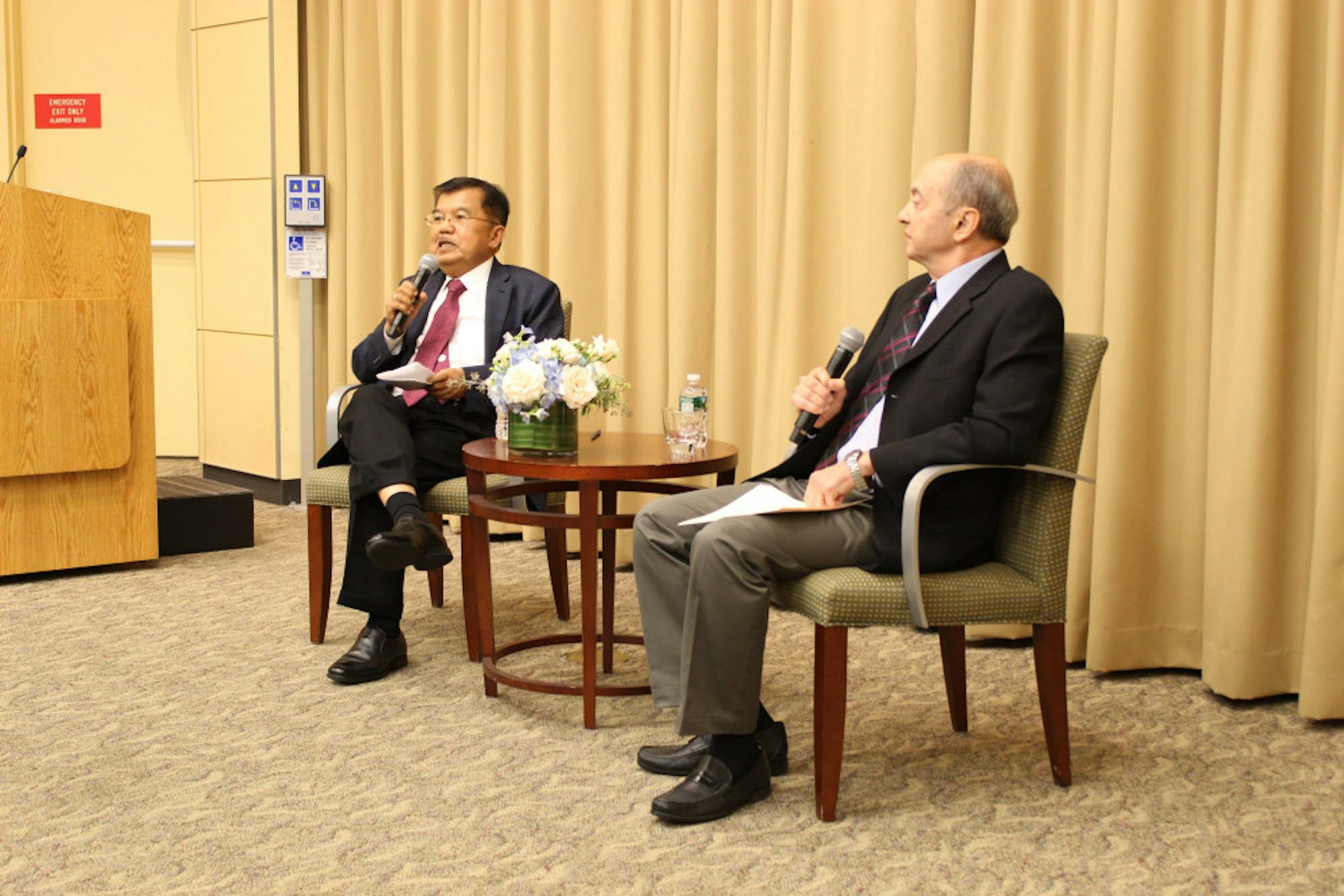Muhammad Jusuf Kalla, vice president of Indonesia, spoke about his country's place in world affairs at a conversation hosted by The Fletcher School of Law and Diplomacy on Sept. 21. Indonesia is the fourth-most populous country and most populous Muslim-majority country in the world.
Kalla, who has been serving his second term as Indonesia’s vice president since 2014, addressed a nearly-full ASEAN Auditorium in the Cabot Intercultural Center.
Over the course of the discussion, Kalla centered on three major themes as they relate to Indonesia: peacemaking, Islam in the world and economic investment and development.
On peacemaking, Kalla highlighted Indonesia's role in helping other states navigate religious ideology.
“We are working now to support Afghanistan to make peace in the region," he said. "We are focused on the problem of ideology that you see in Muslim and Buddhist countries, whether in Indonesia, Afghanistan or Myanmar as well.”
Kalla also emphasized that politics and winner-take-all elections were more likely to catalyze conflict than religious or ethnic allegiances. He gave the audience some advice for the process of peacemaking.
“If you want to make peace, you need to be neutral. Next, know where the problem is. And you need courage,” he said.
Kalla transitioned to discuss the role of Islam in the world today. He focused on how Indonesia is working to avoid falling into the trap of radical Islam.
“The Indonesian government has worked hard at this. We have organized meetings between former terrorists and victims of terrorism. We do this because if terrorists go to jail, they only spread their ideology and create more terrorists,” Kalla said.
The final topic of discussion surrounded economic development and foreign investment in Indonesia and Southeast Asia. In particular, Kalla downplayed the role that a rising Saudi Arabia has on Indonesia.
“Saudi Arabia is still conservative in allegiances and cultures, but it will change. To change, Saudi Arabia needs economic changes. Saudi Arabia doesn’t invest much in Indonesia directly, only through market shares," he said.
Kalla emphasized that to invest, a country needs three factors: capital, skill and technology. “Saudi Arabia only has capital,” he said.
When asked about his plans after next year’s presidential elections in Indonesia, Kalla responded: “I’ve spent 35 years in business, 20 years in politics. For me, that is enough. I plan to retire.”
Even in retirement, Kalla emphasized he will continue to be involved in the betterment of Indonesian society. He has served as chairman of the Indonesian Red Cross Society since completing his first vice-presidential term in 2009, and also serves on the board of trustees of three universities in Indonesia.






